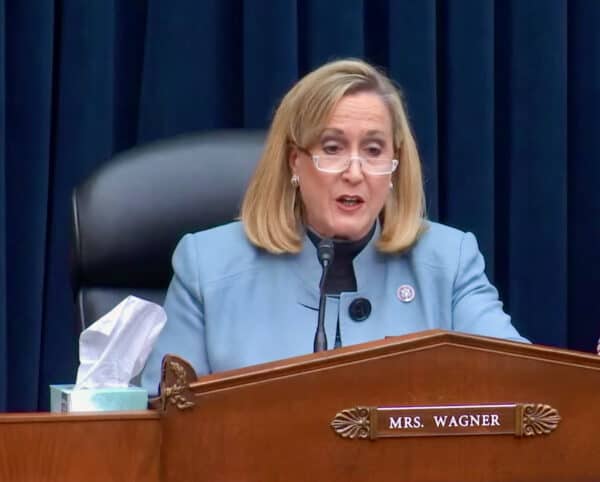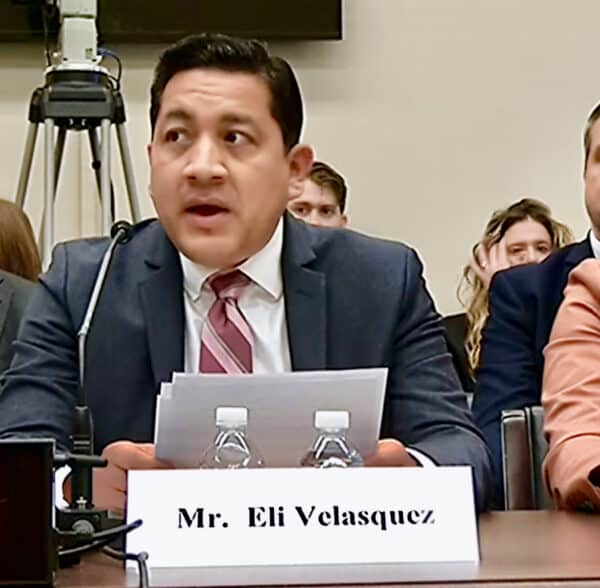
This morning, the Subcommittee on Capital Markets, part of the House Financial Services Committee, held a hearing on the definition of an accredited investor. This definition is utilized to determine who may participate in certain private securities offerings, mostly Reg D 506c/b. Broadly, the definition requires an accredited investor to earn over $200,000 a year ($300,000 if married) or have a net wealth of over $1 million (not counting a primary residence).
The definition has been flawed for years as it is based on a wealth metric without any path for sophisticated investors. As we all know, wealth is not necessarily the best benchmark for investment acumen or the ability to determine risk. Thus the vast majority of the country is disenfranchised by an ecosystem where the most promising early-stage firms raise capital from private investors. Yet, the current leadership of the Securities and Exchange Commission wants to make it more difficult for investors to participate in these private markets, which are far larger than the public markets. Over the years, as the cost to become a public company has risen dramatically, promising firms try to remain private as long as possible, with most of the capital gains captured by wealthy VCs or individuals.
The Chair of the Subcommittee, Representative Ann Wagner, started the hearing with strong support for improving the definition stating she is looking for ways in which “Congress can give main street investors better access to investment opportunities that have been historically available for only the wealthy or highly educated.”
Even ranking Member Representative Brad Sherman, who tends to lean heavily on investor protection concerns, sounded agreeable to changes that expand the definition of an accredited investor.
The witnesses testifying at the Hearing were staunchly supportive of changes to the definition with one exception, a Professor of Law from Duke University, who took an approach that sounded out of touch with reality that raised concerns of extensive fraud if more sophisticated individuals gain the option of investing in private placements.

Eli Velasquez, founder & Managing Partner, Investors of Color, in prepared testimony, explained how he has been cut out of the wealth creation process due to the current requirements of the definition.
“I have missed a generation’s worth of investment opportunities, because I could not participate in the accredited investor asset class. What if I had formal investor education, investment safeguards according to my income or net worth, and professional organizations to mentor me through the investor journey twenty-two years ago? How many exits could I have had? How many small businesses in southern California, El Paso, Lubbock, Massachusetts, and even Claycomo, Missouri could I have invested in? How many jobs could I have helped create? How many more non-profit organizations could I have donated to? How much more would I have been able to contribute to the economy?”
Velasquez said we can reduce barriers and increase the number of accredited investors by recognizing education and experience for aspiring investors.
The founder of Black Girl Ventures, Omi Bell, echoed Velasquez’s sentiments sharing that entrepreneurship was her path out of poverty, adding that due to systemic barriers to generational wealth and increasing wealth inequity, many founders in the Black community cannot tap a network of friends or family to fund their business. She explained that in the past seven years she has reviewed thousands of applications for funding as part of her firm yet after all of her experience she would not qualify under the current definition of an accredited investor.
“I would not qualify until I held an annual income of more than $200,000 for two years or reached a net worth of over $1 million. This means I am effectively shut out of investing in the businesses I believed in before anyone else did, while investors who are already wealthy stand to benefit.”
David Olivencia, CEO of Angeles Investors, said he often hears from non-accredited leaders in the community who want to invest in the companies that his group does but cannot due to the accredited investor standard.
“While earning my MBA at Notre Dame, I learned about startups and how they were leveraging technology to scale. I also learned about early-stage investments, which were largely a secret space or club. It was a space that the wealthy were investing in. There were amazing companies, like Google, Amazon, YouTube, Uber, and others, that were leveraging technology to grow rapidly. Early investors were making outsized returns and reinvesting those returns in the next successful set of startups. Like those early-stage investors, I wanted to get involved. Although I had carefully studied this asset class while earning an MBA from a top school, I sadly could not participate because I did not meet the income or net worth requirements to qualify as an accredited investor. I also, unfortunately, did not have any inherited family wealth.”
Cato’s Director of Financial Regulation Studies, Jennifer Schulp – who also happens to be a former enforcement director at FINRA, criticized the accredited investor definition, which “limits investment by non-wealthy investors” because Reg D is off limits to non accredited investors.
“Approximately 90% of American households are unable to participate in the segment of capital raising that dwarfs the investing opportunities available from companies raising money in public markets. This, alone, should raise a red flag as to the wisdom of the accredited investor definition, but the problems with the definition go beyond this simple fact,” said Schulp. “The accredited investor definition gives the SEC the authority to decide who gets to invest where: public markets for most, but public and private markets for those it judges to be worthy. Such paternalism—limiting how people can invest their money—is objectionable in itself.”
She noted that being wealthy is no proxy for financial sophistication.
Gina-Gail S. Fletcher, a Professor of Law at Duke University, was the lone voice claiming the definition must be made more restrictive, claiming that:
“…allowing retail investors to access the private markets simply increases the likelihood that everyday investors will be worse off from investing in unproven, opaque investments, with limited liquidity and no information to value their investments.”
She lamented the growth of private markets, to the detriment of public markets, without acknowledging the ongoing onslaught of rule upon regulation that has rocketed cost higher, compelling firms to remain private for as long as possible. She described private markets as an “insiders game,” calling on Congress to “restore the public markets” demanding that authorities stop the exploitation of private market investors.
The tone of the hearing appears to indicate there will be bipartisan support to expand the definition as exclusionary policies that benefit one segment of society to the benefit of another tends to be bad policy.
The current proposed legislation addressing the definition of an accredited investor is available below.
- H.R. ___, the “Fair Investment Opportunities for Professional Experts Act” (Rep. Hill)
- to expand the definition of “accredited investor” to include individuals with certain licenses and qualifying education or job experience.
- H.R. ___, the “Equal Opportunity for All Investors Act of 2023” (Rep. McHenry)
- to expand the definition of “accredited investor” to include individuals that are certified through an examination established by the SEC.
- H.R. ___, the “Accredited Investor Definition Review Act” (Rep. Huizenga)
- to require the SEC to review the list of certifications, designations, and credentials for individuals to qualify as an accredited investor and add additional certifications, designations, and credentials to such list which the SEC determines are substantially similar to the existing ones within 18 months and every five years thereafter.
- H.R. ___, the “Accredited Investor Self-Certification Act” (Rep. Davidson)
- to require the SEC to create a form that would allow individuals qualify as an “accredited investor” by self-certifying that they understand the risks of investment in private issuers.
- H.R. ___, the “Investment Opportunity Expansion Act”
- to expand the definition of “accredited investor” to include individuals who invest 10% or less of the greater of their net assets or annual income in a private offering.
- H.R. ___, to expand the definition of “accredited investor” to include individuals receiving individualized investment advice or individualized investment recommendations with respect to a private offering from a professional who qualifies as an accredited investor.
- H.R. ___, the “Increasing Investor Opportunities Act” (Rep. Wagner)
- to amend the Investment Act of 1940 to allow a closed-end fund to invest up to all its assets in private funds.
- H.R. ___, the “Gig Worker Equity Compensation Act” (Rep. McHenry)
- to expand Securities Act Rule 701 to include gig workers and preempt state laws that mischaracterize gig workers as employees.

